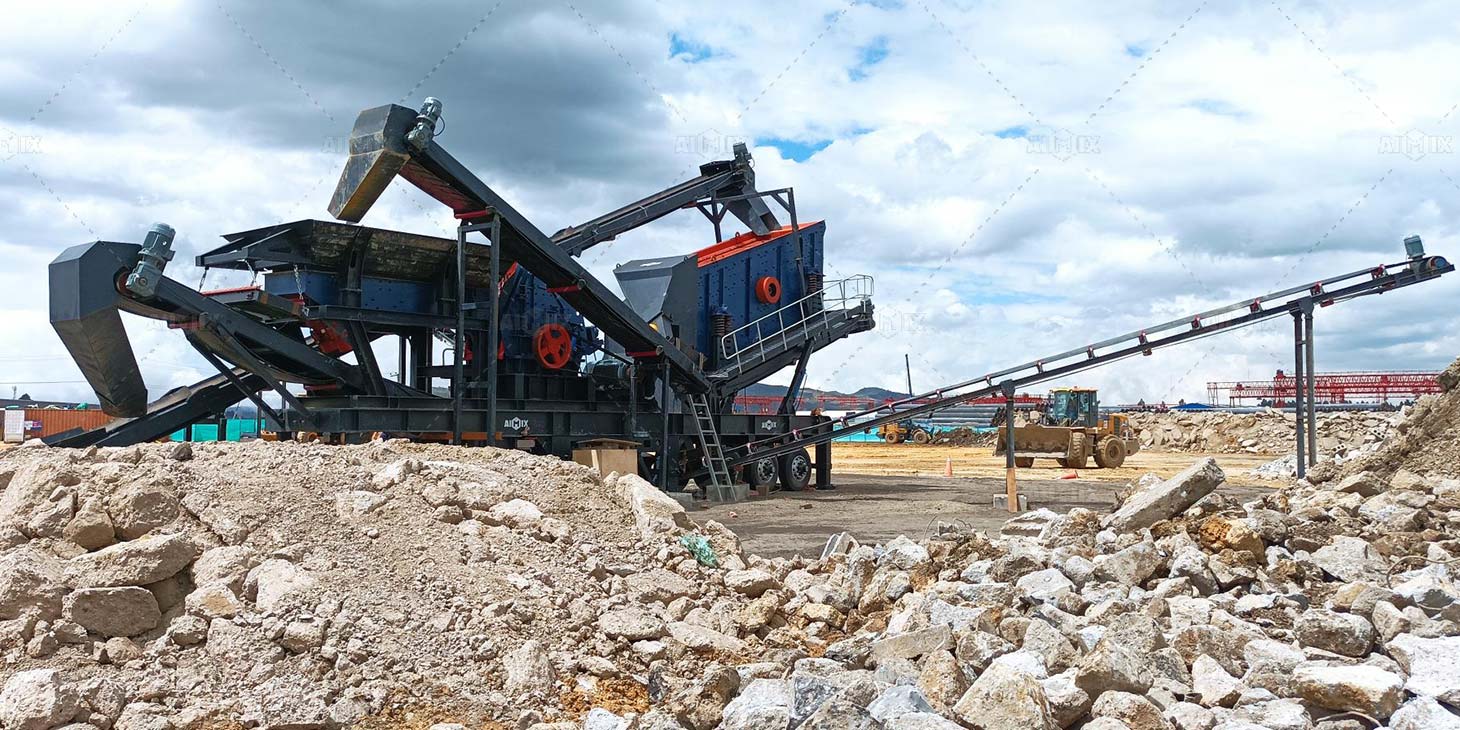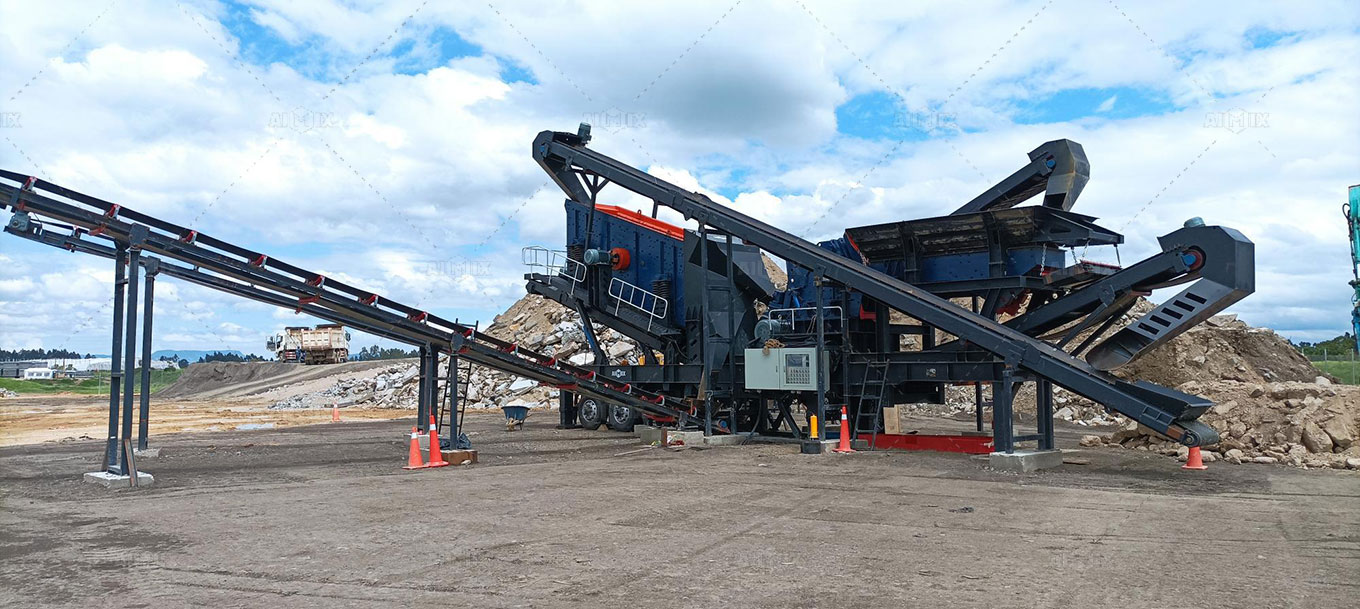The construction industry stands at an environmental crossroads, facing increasing pressure to reduce its substantial ecological footprint while meeting global infrastructure demands. Concrete crushers have emerged as unexpected champions in this sustainability journey, transforming what was once considered waste into valuable resources. The powerful concrete crusher machine represents more than just equipment—they embody a philosophical shift toward circular economy principles in building practices, where materials find new life rather than occupying landfill space.
Modern concrete crushing technology has evolved into a sophisticated recycling process that conserves natural resources, reduces energy consumption, and minimizes construction’s environmental impact. The transformation of demolished structures into reusable aggregate creates a closed-loop system that addresses multiple sustainability challenges simultaneously. From reducing quarrying activities to decreasing transportation emissions, concrete crushers contribute meaningfully to greener construction methodologies that benefit both project economics and planetary health.

Resource Conservation Through Material Reclamation
Reducing Virgin Aggregate Extraction
Quarrying Impact Mitigation
Concrete crushers dramatically diminish the construction industry’s reliance on virgin aggregate extraction, one of the most environmentally disruptive activities in building materials production. Each ton of recycled concrete aggregate replaces approximately one ton of material that would otherwise be quarried from natural deposits. This substitution preserves geological formations, reduces landscape scarring, and maintains natural drainage patterns that would be altered by extensive quarry operations.
Water and Habitat Preservation
The reduction in quarrying activities directly correlates to decreased aquifer disruption and habitat destruction. Traditional aggregate mining operations often require dewatering of excavation sites, affecting local water tables and potentially compromising nearby ecosystems. By utilizing crushed concrete instead of virgin materials, construction projects help maintain hydrological balance and protect wildlife habitats that would otherwise be displaced by expanding quarry operations.
Carbon Footprint Reduction Strategies
Transportation Emission Elimination
Localized Material Processing Benefits
Mobile concrete crushers enable on-site material processing, eliminating countless truck journeys between demolition sites, landfills, and new construction locations. This localized approach reduces diesel consumption and associated emissions by up to 85% compared to traditional construction waste recycling methods. The environmental advantage compounds when considering that recycled aggregate typically travels shorter distances to end-use sites than quarried materials, further reducing transportation-related carbon output.

Embodied Energy Conservation
The production of recycled concrete aggregate requires significantly less process energy than virgin aggregate. While quarry operations involve drilling, blasting, crushing, and screening—all energy-intensive processes—concrete crushing primarily utilizes mechanical energy for size reduction. This energy differential, combined with avoided transportation requirements, makes recycled concrete one of the most carbon-efficient construction materials available today.
Waste Stream Diversion and Management
Landfill Space Preservation
Volume Reduction Achievements
Concrete crushers perform remarkable volume reduction transformations, converting bulky demolition debris into compact, usable aggregate. This process diverts millions of tons of material from overcrowded landfills annually, extending the operational life of waste management facilities and reducing the need for new landfill development. The space conservation benefits extend beyond mere capacity preservation to preventing potential groundwater contamination from concrete leachate.
Comprehensive Demolition Recycling
Modern crushing operations often incorporate advanced separation technologies that extract rebar, metals, and other materials alongside concrete processing. This comprehensive approach through mobile impact crusher ensures near-total diversion of demolition waste from landfills, with some operations achieving 95%+ recycling rates. The recovered metals enter their own recycling streams, creating additional environmental benefits while improving the overall economics of concrete recycling operations.
Sustainable Construction Methodology Enhancement
Green Building Certification Contributions
LEED and BREEAM Point Accumulation
The use of crushed concrete aggregate contributes significantly to sustainable building certification programs worldwide. Projects utilizing recycled content can earn points under multiple categories in LEED, BREEAM, and other green building rating systems. These certifications not only recognize environmental responsibility but often translate to tangible benefits including regulatory approvals, tax incentives, and enhanced property values.
Lifecycle Assessment Improvements
Incorporating recycled concrete improves the environmental lifecycle assessment of construction projects dramatically. From reduced embodied energy to minimized end-of-life impacts, buildings utilizing crushed concrete demonstrate superior environmental performance across multiple metrics. This comprehensive approach to sustainability accounting reflects the growing understanding that true environmental responsibility extends from material sourcing through eventual demolition and reuse.
Concrete crushers have fundamentally transformed from simple demolition tools into instruments of environmental stewardship, enabling the construction industry to reconcile development needs with ecological responsibility. Their ability to close the materials loop represents a practical implementation of circular economy principles that benefit project budgets, community aesthetics, and planetary health simultaneously. As crushing technology continues advancing with improved efficiency and cleaner energy options, the mobile crusher machine will play an increasingly vital role in building the sustainable infrastructure of tomorrow using the materials of yesterday.